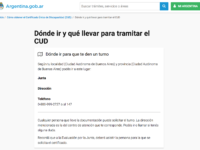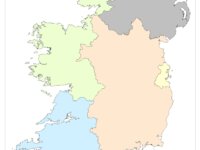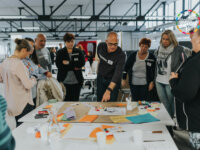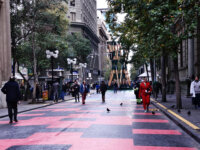Globally, public procurement is in desperate need of reform and must embrace the tools, techniques and culture of the digital age. It’s a government’s top corruption risk as it’s where money and discretion collide.
The UK has begun to address this; GDS is leading the Global Digital Marketplace project, which is embedding user-centred, design-led, data-driven and open approaches across digital, data and technology planning, procurement, contracting and service delivery.
Innovation Tag: Public Policy
There are two projects to co-build the relationship change between administration and farmers, organised by the group “Les IdéaCteurs” :
- “la parole aux jeunes” an innovative form of debate with 80 technical students to become farmers
- a creative session “pour simplifier la vie des agriculteurs” organised in june 2018, with 40 people (half of farmers, half of public officers) which allowed, in a very constructive climate, to generate around 20 ideas about 3 possible axes of…
Case Study
Certificado Único de Discapacidad (CUD) – Redesign of the granting service of the Unique…

Obtaining a Certificado Único de Discapacidad (CUD, a disability certificate) in Argentina was a complex, painful and difficult process. It was a citizen’s right, but did was not a digital service. The process lasted up to 7 months and had 4 steps. There is now one step. A wizard guides citizens in the requirements of the application, an online appointment system schedules the interview and proactively provides notifications in the citizen's digital profile. The redesign of the service put…
Climate change requires comprehensive responses at local and regional level which makes local government critical to the delivery of national and international policies. The establishment of four Climate Action Regional Offices (CAROs) as Centres of Excellence based on distinct geographic/topographic characteristics enables them to advise local authorities in their region on climate action strategies ensuring a coordinated response and assisting with the roll-out of national/regional policies at…
Case Study
Crowdsourcing alternative policy proposals’ impacts on SMEs (small and medium enterprises)
Open and inclusive policy-making builds upon the idea of designing policies by broadening the evidence base. An innovative web-based tool called SME test enables the public (citizens, business entities, economic and other interest groups) to quantify the impact of their alternative policy proposals on SMEs, in addition to substantiating their comments and proposals on a public policy proposal. Despite the tool's ease of use, it enables users to conduct more sophisticated analysis.
The Lab is an all-of-government neutral space enabling agencies to collaboratively innovate to make it easier for people to access government services. It's a design & development lab to experiment, drive and enable the systemic change of government for the benefit of society. We are providing a way to direct public funding to systemic improvements, horizontal efforts around shared goals, capability uplift, high value reusable components and actionable innovation for all participating agencies.
The Government of Slovenia has developed a new approach to preparing government services and public policies. Through specially designed workshops with a 360° approach to different stakeholders, these so-called ˝Policy Jams˝ aim to develop citizen-centred policy solutions. Based on systems theories and service design principles they open up the discussion space, while gearing participants toward finding viable innovative solutions.
The Free Education platform is an open and collaborative learning space that seeks to awake the interest of Brazilian youth in their personal and professional development. It is a free, open platform, and its practical, interactive content is especially directed at lower income youths (between the ages of 16-24), that have not completed high school and do not have the necessary skills to find employment or interest in continuing their studies through formal education.
Paseo Bandera is a street in the heart of Santiago that for 5 years was closed for work on the construction of the Santiago new subway line. Because of the closure, it was used for parking and passage of cars all day, being one of the worst streets in terms of quality in the center of the capital. In 2017, it was authorized for 10 months to be pedestrian. With artistic and technological innovation was possible to improve the quality of public space, accessibility, environment and mobility.
Case Study
Using Behavioral Science to Reduce Corruption Within Mexico’s Public Service: An Innovative Way to…
Corruption in Mexico is a daunting problem that negatively affects the lives of millions, despite the growing expenditure in fighting it. UCEx’s evidence-based innovation is an alternative solution resulted from a rigorous field experiment. It used behaviorally informed-messages sent to 157,586 real public officials to increase the reports of gifts they receive and may pose a conflict of interest.This intervention puts “a foot on the door” towards the long path of controlling corruption.




